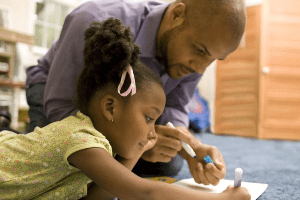
Healthy, strong family relationships are foundational to young people’s growth, learning, and well-being.
These relationships build strong social and emotional strengths that kids use throughout their lives.
But great family relationships don’t just happen..
Welcome to My Discovery Destination!
Discovery Family Adventures
where your family can find plenty of opportunities to
The Discovery Family Adventures provide ideas, activities, and experiences to help build strong family relationships.
Our goal is to strengthen family relationships to help kids be and become their best selves
and to support parents in raising happy, successful, resilient kids in an exciting,
but sometimes turbulent and dangerous world.

Core Adventures are still available via the website for use by anyone that wants them, but everyone is encouraged to use the Discovery Hunt (Goosechase) App for hundreds of adventures throughout the year.
Get links for downloading the App HERE.

Sponsored by:



Choose from the Adventures listed below
(or design your own family adventure!)
📝 Learn when and how to ask for help and practice doing it. ℹ️ An important aspect of social emotional learning (SEL) is independence, including the ability to manage one’s emotions and complete tasks on their own. However, there are times when challenges seem too big and our emotions are overwhelming. This can lead to feelings of stress, anger, and fear. Children need to know that when there are difficulties or tasks that feel overwhelming, they can (and should) ask for help! 👨👩👧👦 Complete the following exercise with your kids to help them understand that it's okay to ask for help and to practice doing it. → Brainstorm as a family some situations that might feel stressful or out of control where people might need to ask for help. Remember brainstorming means throwing out as many ideas as possible without any judgment. Encourage discussion around each scenario brought up. → Now move closer to home. Have each family member think about, and write down, some times during the past week or month when they could have used some help. → Let them share how they handled it and discuss how they did, or could have, benefited from asking someone for help. → Help them talk through who they can ask for help and how they might like to receive that help. Discuss the following important ideas about asking for help that we should remember: → Sometimes we get so excited about a new assignment that we jump right into the task without listening to or reading the instructions. Other times, parents and teachers simply forget to explicitly give instructions or model how things work. It’s normal to feel frustrated when we don’t know where to start. This is one of those situations where we should ask for help with clarifying instructions. → Asking for help makes us stronger and builds resilience! A recent article from Kaiser Permanente states that asking for help fosters resilience. Resilience is a key component of mental health and is the ability to bounce back from challenging thoughts or experiences. Remember that as when we ask for help we grow stronger. → Asking for help strengthens our connection to others. When we ask others for help it helps us build a connection with that person and it actually helps those we seek help from. When others are able to help us out, they feel trusted, valued, and happy to make us feel supported. → Quotes to Remember: It’s okay to ask for help! As Les Brown put it, “Ask for help, not because you are weak but because you want to remain strong”, or as Lily Collins said, "Asking for help is never a sign of weakness. It's one of the bravest things you can do." Here is a printable from Better Kids that might be helpful during your discussion: Better Kids Printable → Next identify your support system Help kids identify their support system and situations where asking for help would be a good idea by asking the following questions: Who can help me when I am angry/sad? Anger and sadness are examples of big emotions that can be difficult to handle alone. Some examples of who can help when we are feeling these emotions include parents, siblings, grandparents, close friends, or teachers. These are some of the people that make up our support system. How can they help me when I am sad/angry? Together talk through who they can ask for help and how they would like to receive that help. Let each family member share what things they would like family members to do when they share that they are feeling stressed, angry, confused, etc. Do they want you to ask questions about what happened or simply give hugs? Do they want you to JUST listen or share suggestions of how they might overcome the problem? Do they need/want different things from different family members? When can I ask for help? An article from Psychology Today shares that in the classroom, students should wait to ask for help until there is a break in activity or after the teacher has given instructions. We can help kids understand that others may need help too, so whether it be another student at school or a sibling at home, we may need to wait to ask for help until the person we are seeking help from is ready to listen and be present to our needs without other distractions. → Lastly, Practice! Role play the situation(s) your family members identified so everyone can practice asking for help. As kids are learning coping strategies to use independently when they are feeling these emotions, they may find it helpful to practice them with someone they trust. It can help kids by practicing coping strategies with someone with whom they feel safe and understood. Work through it with your child, helping them come up with WHO they can ask for help both at home and at school, WHEN they might need to ask for help, and HOW they feel help could be given. Let your child talk and work through these questions! Then help them record their answers and place the printout somewhere where they will see it often. Hanging on a wall in their bedroom or on the fridge in the kitchen are good options. 💡 🔸 As parents, we often feel like we need to have all the answers. You don't! If your child asks you a question you don't know the answer to, let them know that you aren't sure but that you will find out. Then show (or tell) them how you will go about finding out. (This might be searching Google, asking a friend, looking it up in a book, etc.) 🔸 Let kids see you struggle . . . and manage it. For example, if you are struggling with keeping up with the housework, let your kids know that you have fallen behind and ask for their help to get caught up. If you don't have time to make dinner, ask your family for help making it. When big challenges arise, let your child see you asking a neighbor or a professional for help. Children learn so much from what they SEE. Let them see that it's okay to ask for help when we need it! 🔸 Celebrate your child’s asking for help by reminding them that they are growing stronger. You can also emphasize that asking for help strengthens our connection to others: when others are able to help us out, they feel trusted, valued, and happy to make us feel supported. 👶 Check out this app for children ages 4+: Wisdom: The World of Emotions Books are also a great way to teach young children about emotions and asking for help. Try one of these suggestions from Better Kids: Giraffe Asks For Help by Nyasha M. Chikowore Gary Giraffe is so excited to finally turn six—now he should be able to reach the acacia leaves all on his own! When things don’t go exactly as he’d planned, Gary is distraught. He tries and tries to get to the leaves himself, but he’s just not tall enough. The other giraffes can do it—why can’t he? Gary doesn’t want to have to ask for help, but his friends convince him that everyone needs help sometimes. And that’s OK! The Thing Lou Couldn't Do by Ashley Spire Lou and her friends are BRAVE adventurers. But one day, when they're looking for a ship to play pirates in, Lou's friend has an idea: “Up there! The tree can be our ship!” This is something new. Lou has never climbed a tree before, and she's sure she can't do it. So she tries to convince her friends to play a not-up-a-tree game. When that doesn't work, she comes up with reasons for not joining them --- her arm is sore, her cat needs a walk, you shouldn't climb so soon after eating. Finally, she tells herself she doesn't want to climb the tree. But is that true, or is this brave adventurer just too afraid to try? 🏘 How can you help others in the community who might be feeling overwhelmed or stressed? As a family brainstorm some ideas and then pick one to carry out. Examples: → mowing a neighbors lawn or shoveling their sidewalk → taking dinner to a family with a new baby → mailing a "thinking of you" card to someone who is feeling sad 💁♂️ 💁🏻♀️ Teaching teens to ask for help is so important! The printable might be a little "young" for teens, but the questions are completely age appropriate! Be sure to include your teens in identifying situations that feel stressful or out of their control. Help them talk through who they can ask for help and how they might like to receive that help. You might also try asking your teen what things they would like you to do when they let you know they are feeling stressed, angry, confused, etc. Do they want you to ask questions about what happened or simply give hugs? Do they want you to JUST listen or share suggestions of how they might overcome the problem?
Family Adventure
🔸 Children learn new skills by observing and reproducing others’ behaviors, especially from people they identify as their role models. Remember to MODEL asking for help when you need it! As adults, we can seek support from our family, our friends, our community, or reach out for professional help. By modeling this skill, our children will learn that we don’t have to face challenges alone.Pre-K Adventure
Community Engagement Adventure
Teen Adventure
by Ask For Help When Needed

NOTE: If the Adventures don't show up find them at DiscoveryFamilyAdventures.com

My Discovery Destination! Adventures
Sponsored by My Discovery Destination! and local businesses and organizations in your community
for the purpose of
STRENGTHENING FAMILIES and BUILDING CHARACTER.




